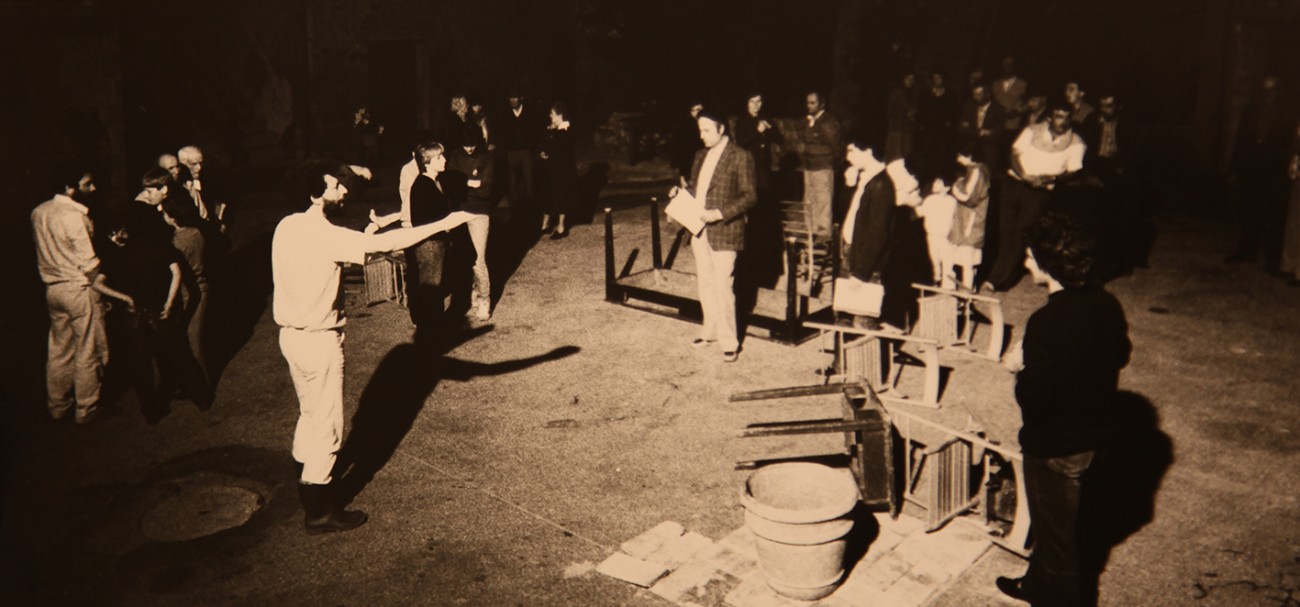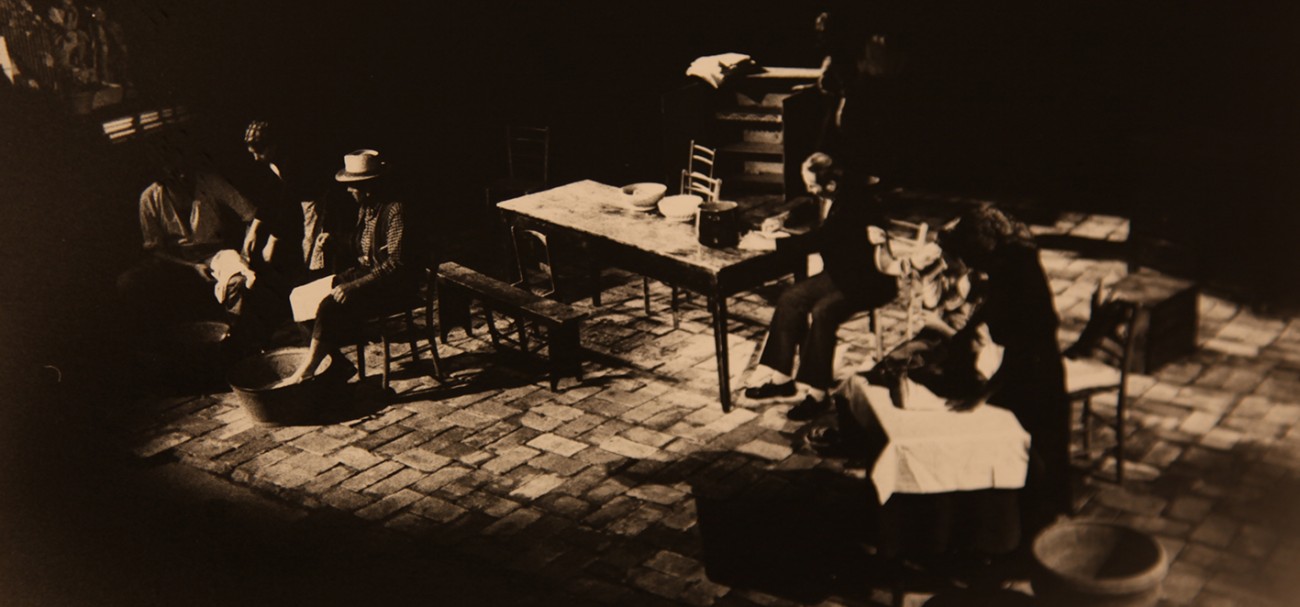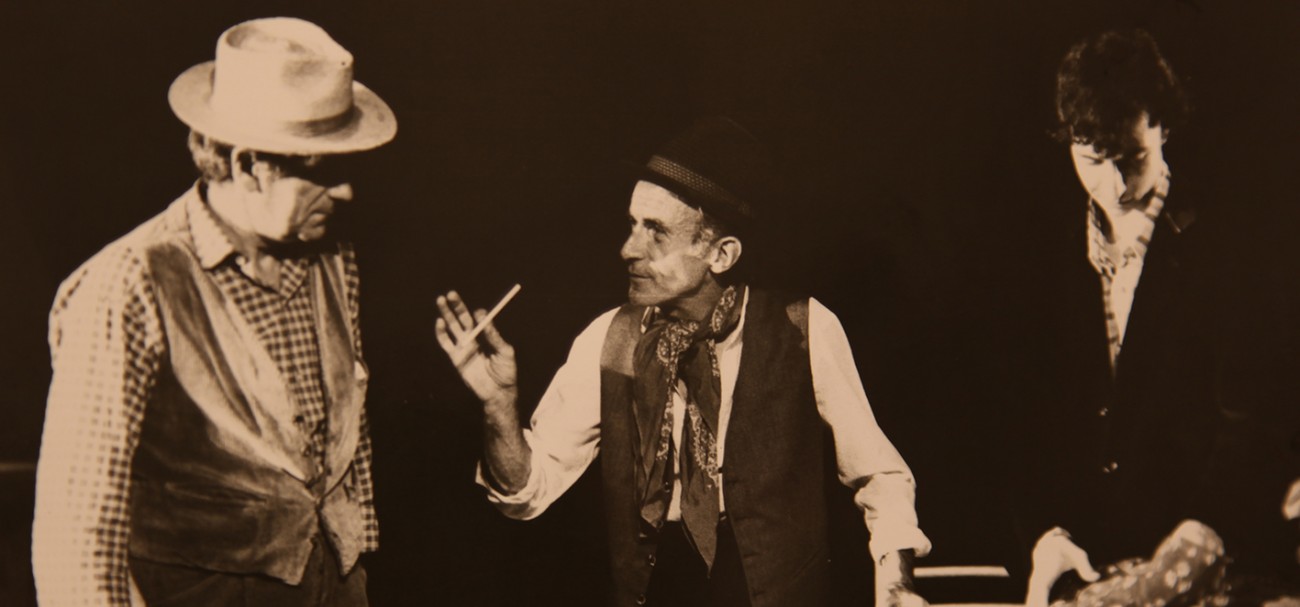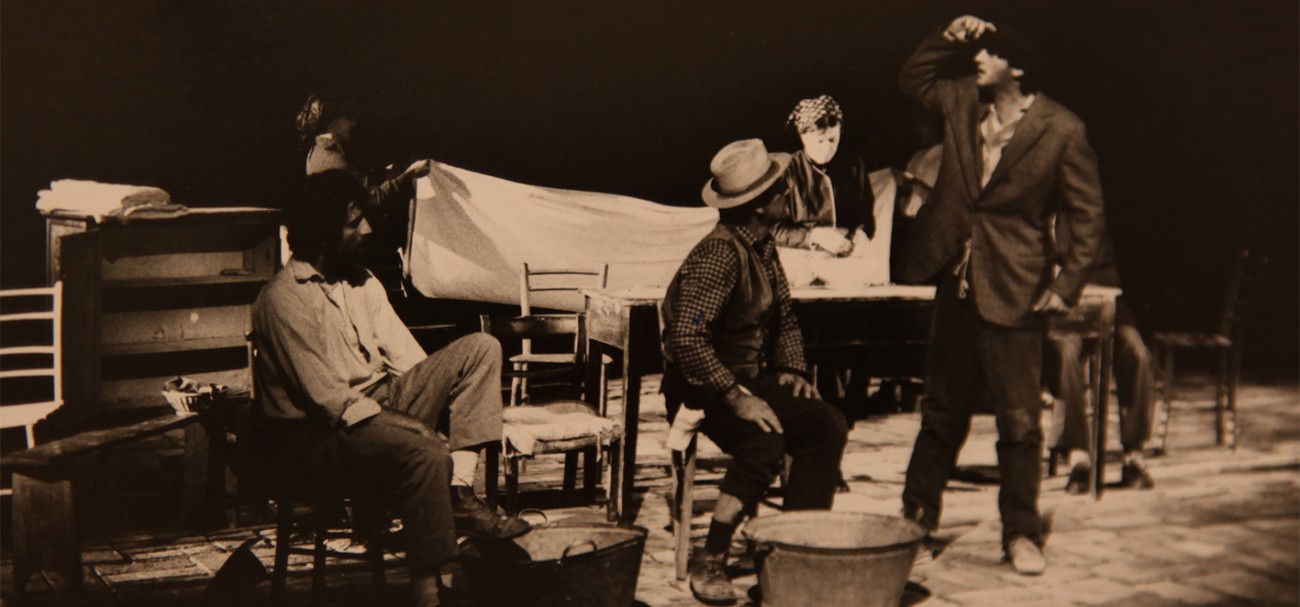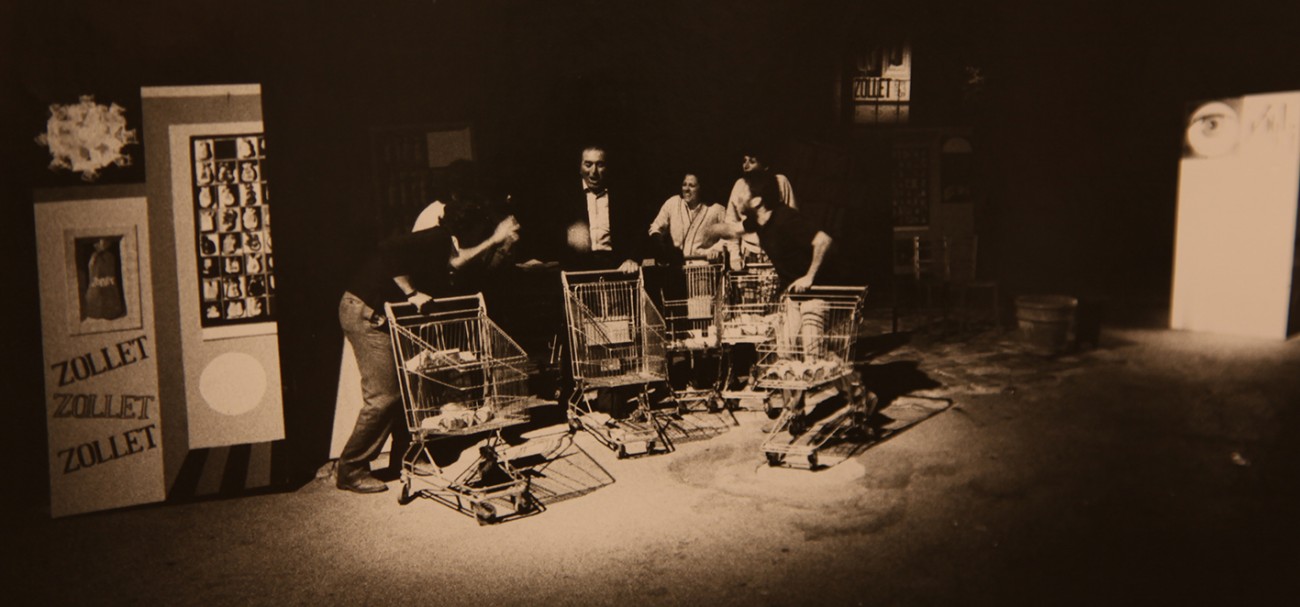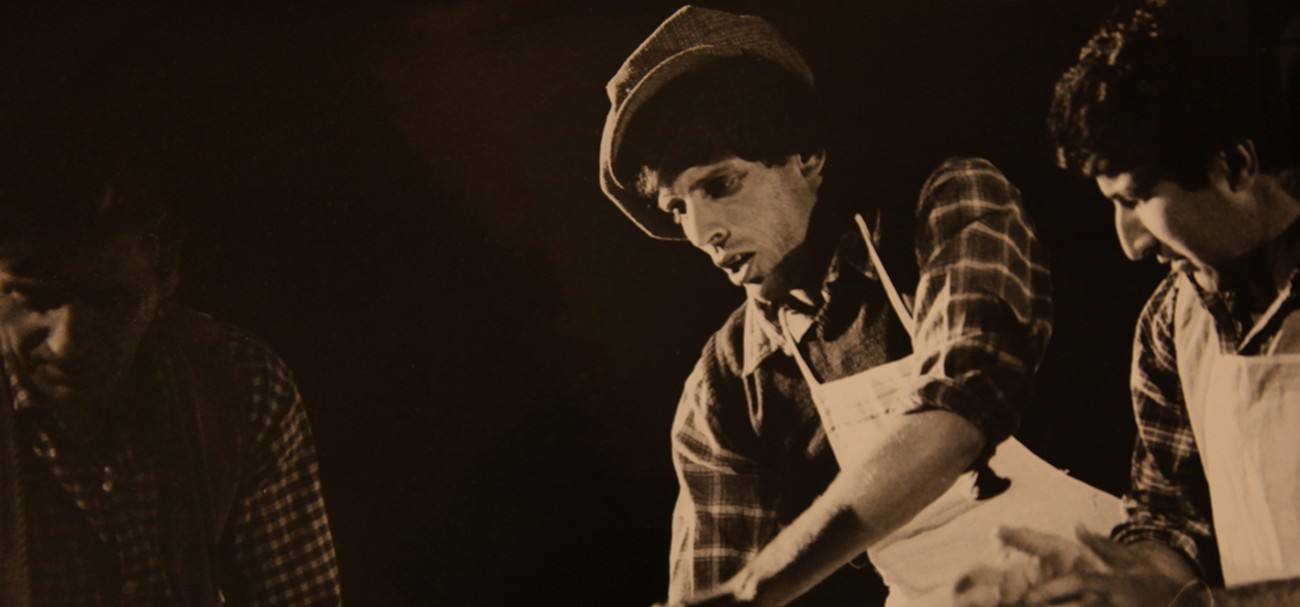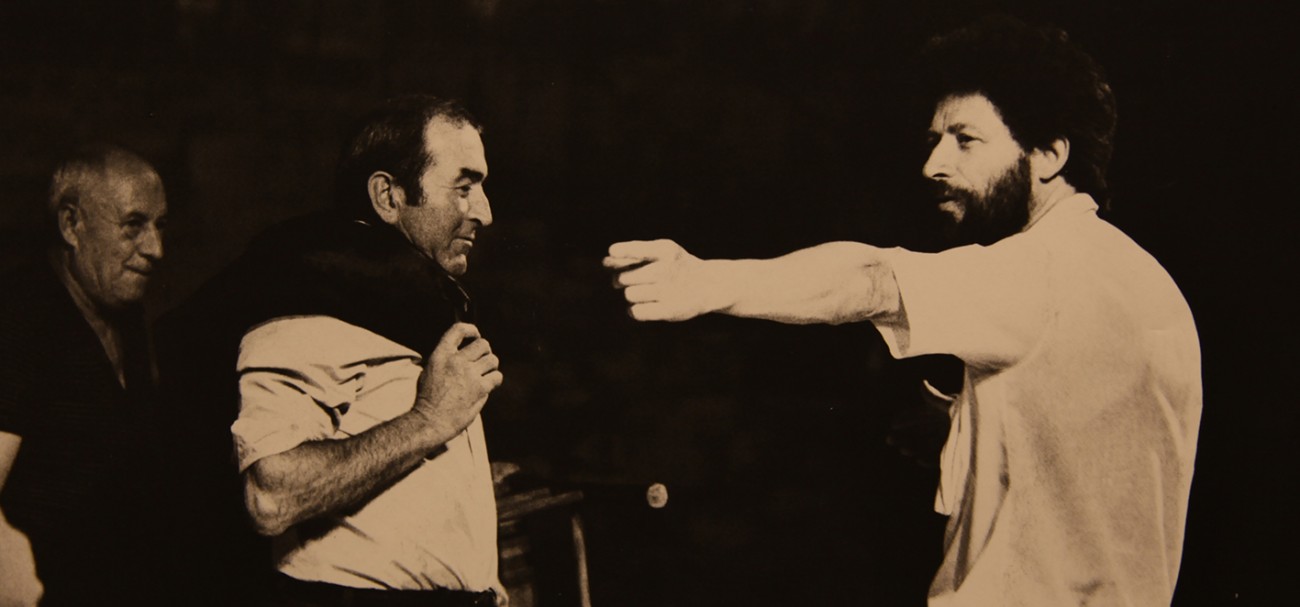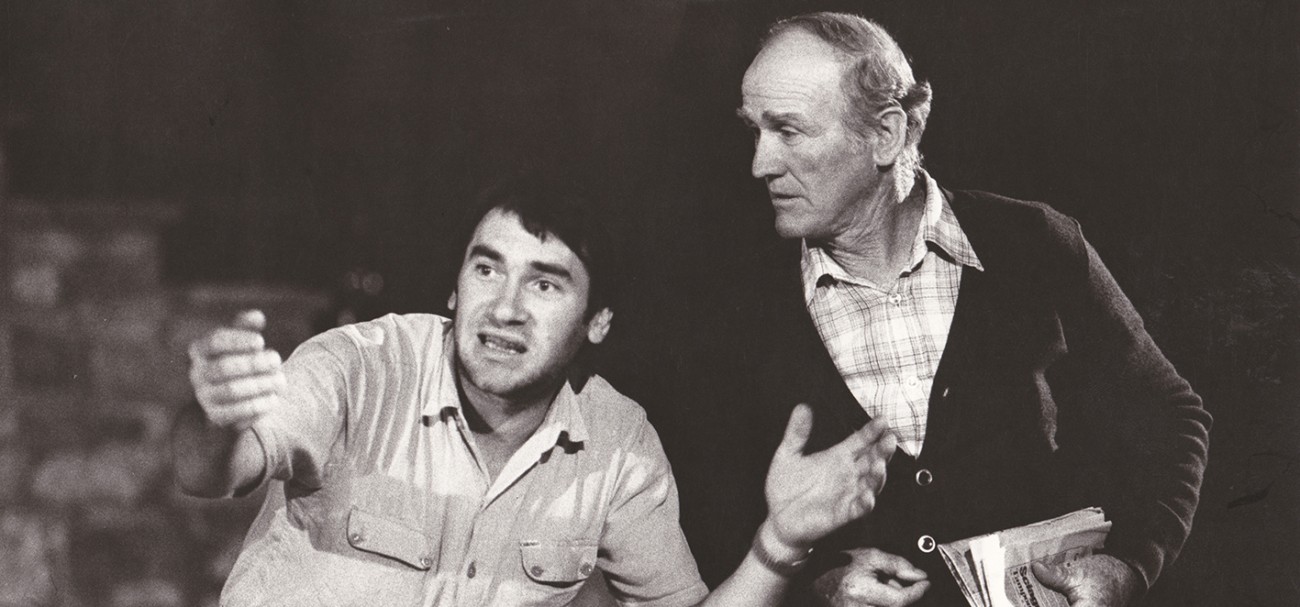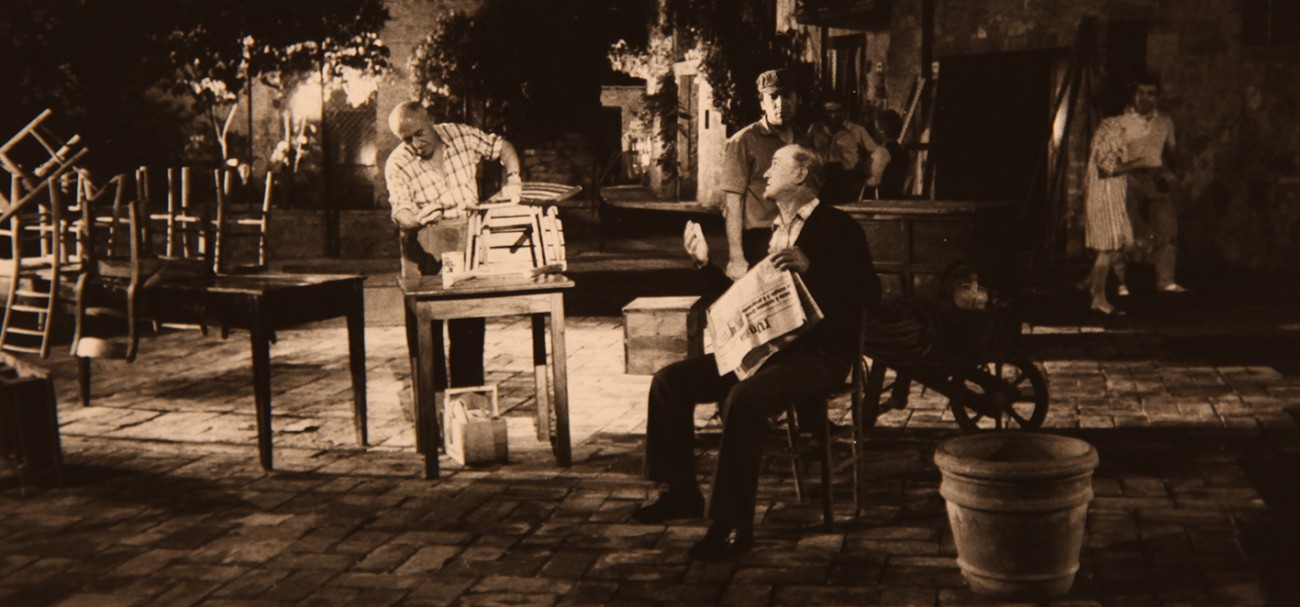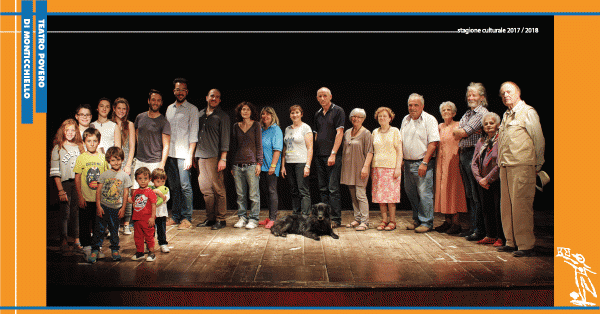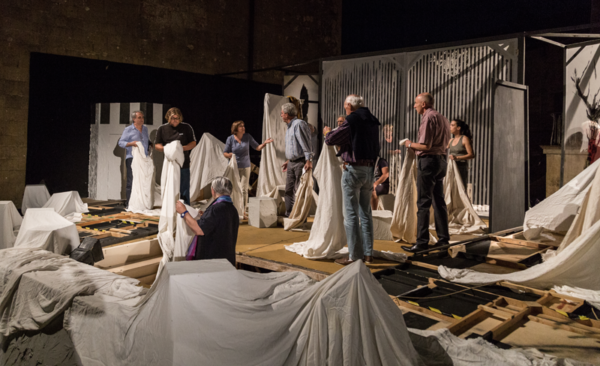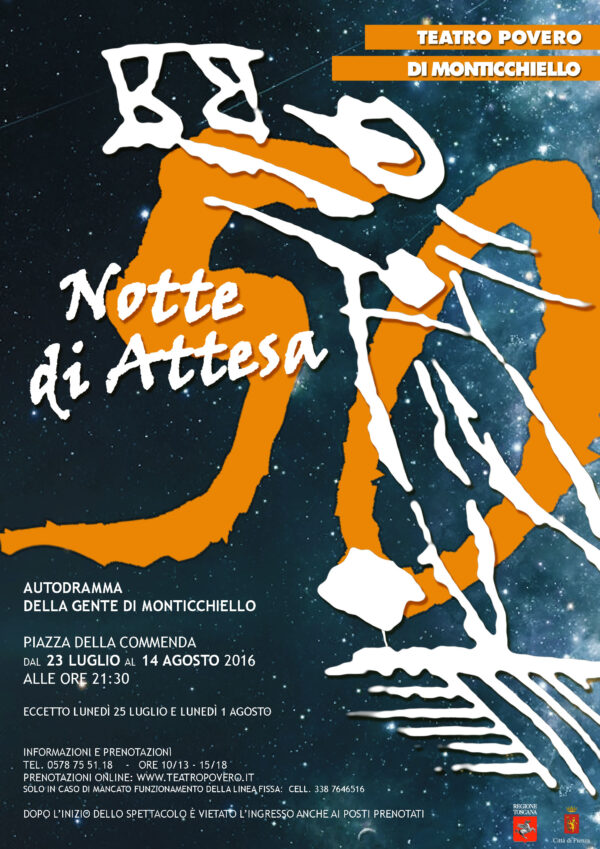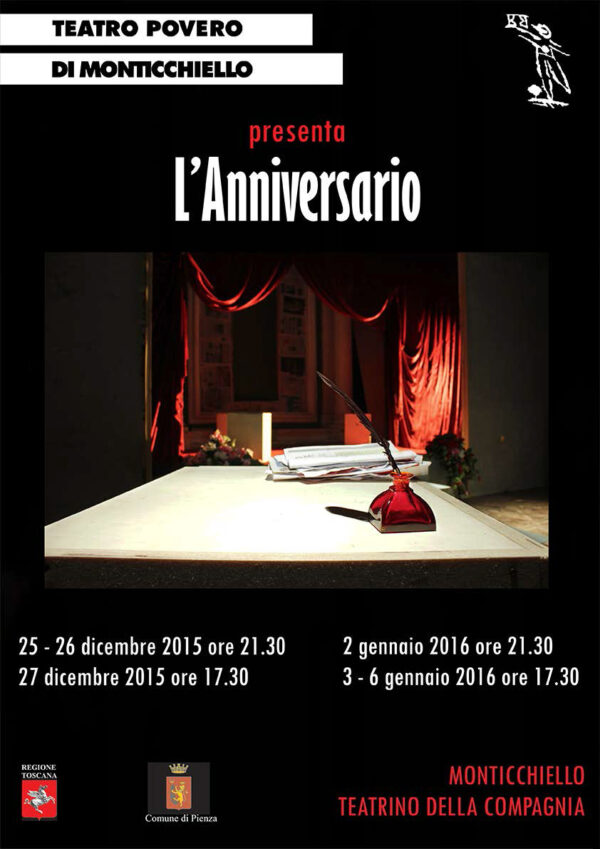“Zolla” in Italian means a clod of earth; the “-et” suffix sounds like something from the world of brand advertising, with a vaguely exotic ring. The ultimate theme of this autodramma was in fact the commercialization and selling of land, in the past and in the possible present or future.
The play dealt also with the larger question of changing attitudes to money. A single older man was revisiting Monticchiello, remembering his past childhood and being confronted with a possible nightmare future.
Two ‘peasant family’ scenes showed how Tuscan sharecroppers were ruled by desperate attempts to avoid debt; and so how when the sharecropping system collapsed in the 1960s, many of them were afraid to borrow money in order finally to buy their land from the former owners. Their insistence on buying only what they could pay for had moral overtones, which then often obstructed their dreams of self-sufficiency.
The projected future showed a world in which those values had disappeared. A world where ‘waste’ was a forbidden concept, where purchase on credit was so necessary to the economy that it had become compulsory. And a world where Monticchiello had been turned into a supermarket, just selling a single product in various packages—‘Zollet’, the clods of earth which for the peasants of the past had been so precious, and so unattainable.

